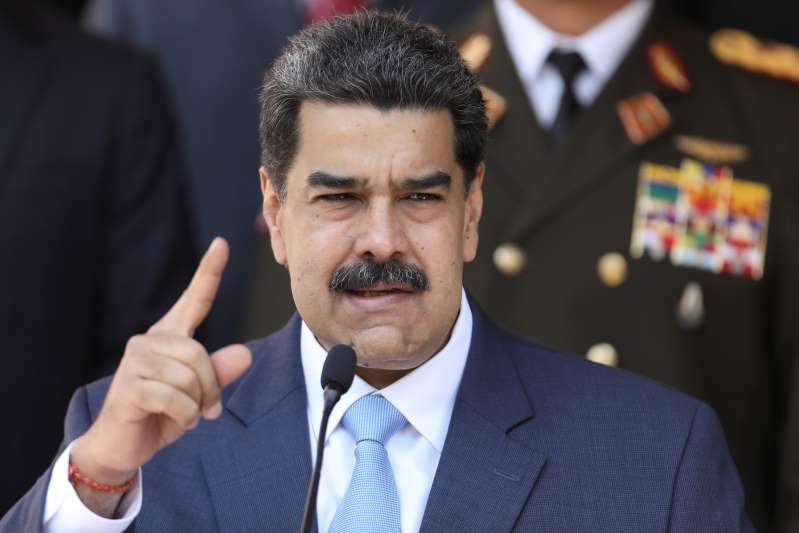IMF Won’t Lend to Venezuela Because Maduro Lacks Recognition

The International Monetary Fund said that it can’t consider Venezuelan President Nicolas Maduro’s request for $5 billion to deal with the coronavirus pandemic because his government isn’t recognized by the international community.
“Unfortunately, the fund is not in a position to consider this request,” an IMF spokesperson said. “As we have mentioned before, IMF engagement with member countries is predicated on official government recognition by the international community, as reflected in the IMF’s membership. There is no clarity on recognition at this time.”
Maduro ordered a nationwide quarantine starting Tuesday after the number of people infected with the virus nearly doubled to 33 on Monday. While the country has suspended schools, ordered commuters to wear face masks and limited almost all air traffic, there’s much uncertainty about how Venezuela would cope with the spread of the virus.
“This is a crucial moment, and knowing the aggressive and highly contagious levels of this disease, we will take quick and forcible measures to stop its propagation,” Maduro said in a letter to IMF Managing Director Kristalina Georgieva signed on March 15, shared by the country’s Foreign Minister Jorge Arreaza on Tuesday.
The IMF said it’s ready to mobilize its $1 trillion lending capacity to help nations counter the coronavirus outbreak, with Georgieva calling for global coordination on monetary, fiscal and regulatory support. Georgieva reiterated in a blog post Monday that the fund has $50 billion in flexible and rapid-disbursing emergency funds for developing nations, with as much as $10 billion available at zero interest rates.
Venezuela’s relationship with the IMF has long been contentious. In 2007, late President Hugo Chavez pledged to cut ties with the fund, considering it a body that serves the interests of the U.S.
Last year, the IMF suspended Maduro’s access to almost $400 million of special drawing rights, citing political chaos since opposition leader Juan Guaido was backed by almost 60 countries as the rightful leader.
Venezuela’s health system, depleted by a seven-year recession, is ranked among the worst in the world in its capacity to detect, quickly respond and mitigate a pandemic. The country’s hospitals suffer from vast shortages of anything from antibiotics and protective equipment to soap and water.
Photo: REUTERS/Manaure Quintero Venezuela's President Nicolas Maduro speaks during a news conference at Miraflores Palace in Caracas, Venezuela, March 12, 2020. REUTERS/Manaure Quintero
Link: https://www.msn.com/en-us/news/world/imf-wont-lend-to-venezuela-because-maduro-lacks-recognition/ar-BB11kmkW











